KUALA LUMPUR, Nov 22 — To Noraida Razak, dropping by the pawn shop once every few months to exchange her gold jewellery for cash is not a big deal.
Rather, the 43-year-old said it’s a very convenient platform to get instant money whenever she needs funds urgently and her bank savings are low.
Noraida, who runs a childcare centre in Dungun, Terengganu told Malay Mail that her most recent gold-for-cash exchange at the pawn shop was to buy a laptop for her child who’s studying in a local university, as well as to cover treatments fees for her ageing mother and her three special-needs brothers.
“Everything is expensive right now. Plus, my savings also are diminishing,” she said.
Nurul Fareha Aziz Samsudin who lives in Shah Alam, Selangor also sees the pawnbroker as a convenient service for fast cash without having to undergo the hassle of applying and waiting for bank loan approvals or relying on her relatives, especially when she needs just a few hundred ringgit.
“I pawn my assets when I need cash.
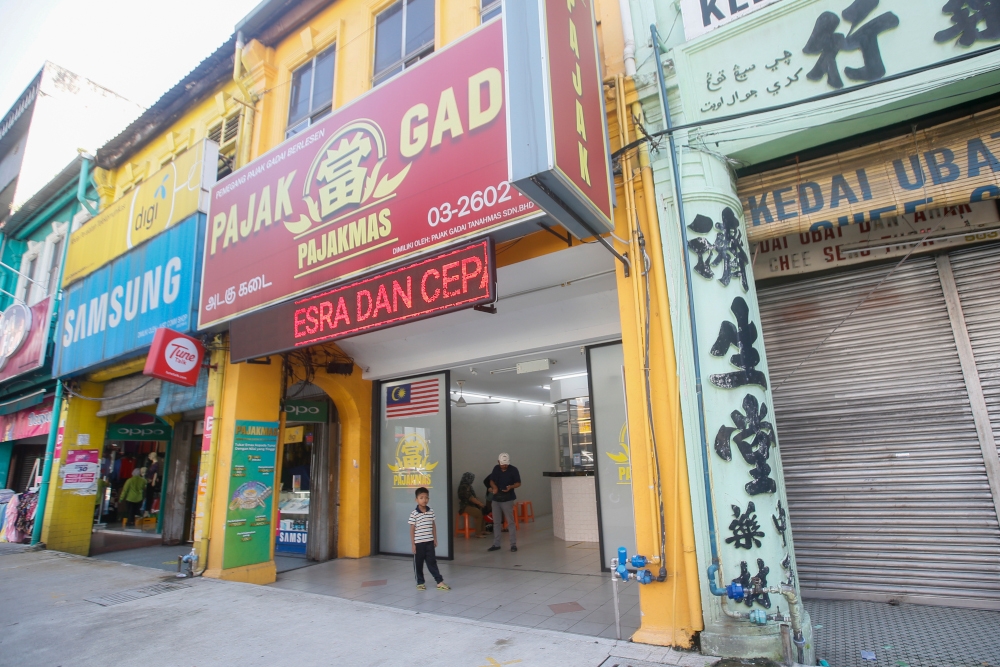
“If I only want a small amount, I can pawn rings. If it’s a big amount, I can pawn the bracelets or necklace,” said the 34-year-old who is currently self-employed.
She said that she prefers this method of getting cash as she only has to pay the pawnbroker’s fees compared to applying for loans and being charged a higher interest for a short period of time.
Nurul Fareha said she goes to an Islamic pawn shop that has opened in her neighbourhood, which adds to the ease in doing business as she doesn’t have to travel very far.
Pawn shops, which used to have a rather shady reputation, have grown far more common in recent years.
They are just as easily found in a residential suburban taman as in commercial districts in the Klang Valley, as Malay Mail observed recently for this story. Sometimes there are two or more on the same road or adjacent roads.
The newer ones have eye-catching running LED display screens at the shop front or neon signs and brightly lit interiors. Most of the pawn shops operate from 9am to 6pm six days a week, but some, depending on their location, stay open even on Sundays.
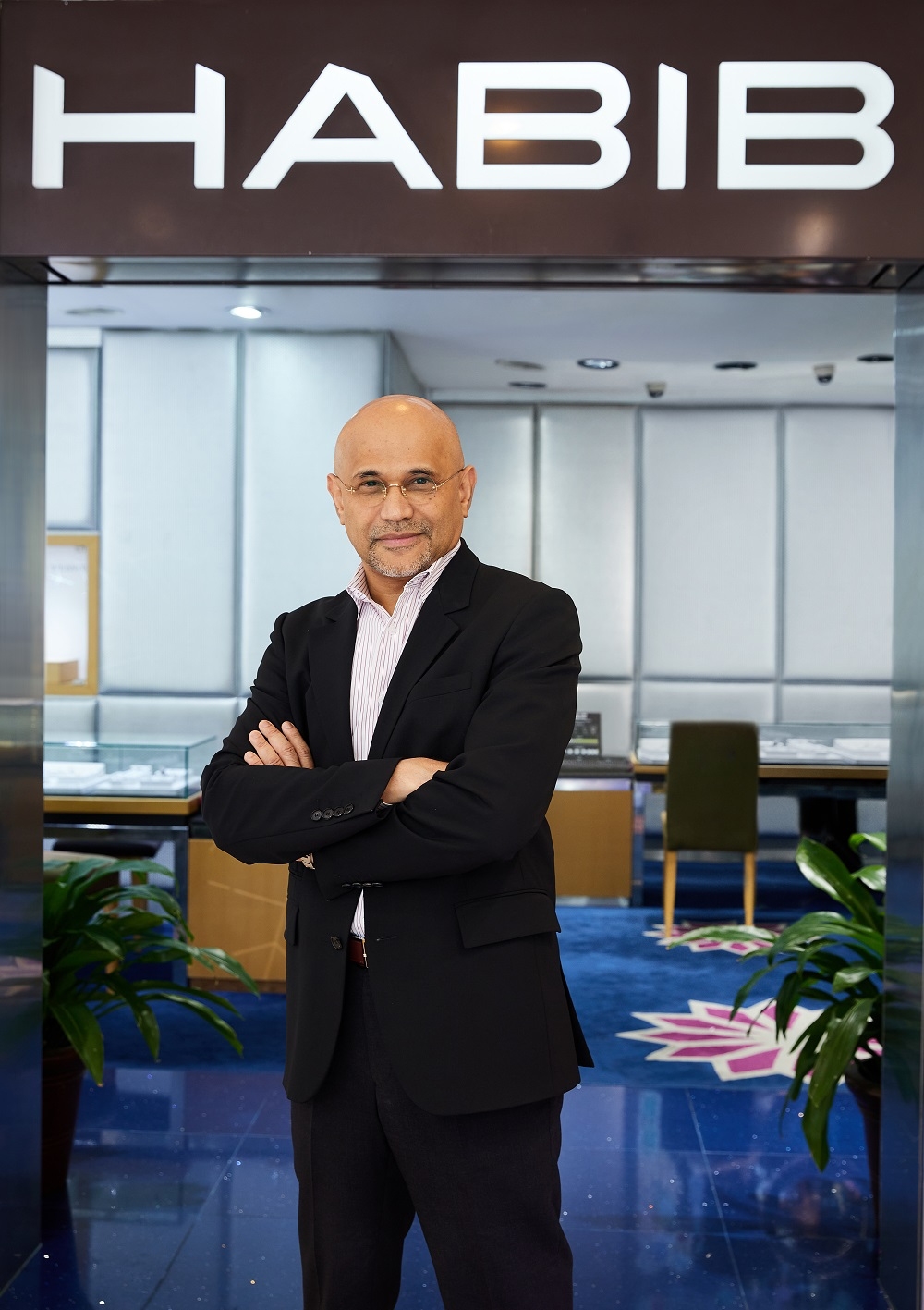
Gold’s turning tide
Datuk Seri Meer Sadik Habib, the executive chairman of Habib Group that owns Habib Jewels and Ar-Rahnu Express, said the global trading price of gold today has risen by 52 per cent compared to 10 years ago.
With the price of gold on an upwards trajectory, he said now is a good time to trade in gold.
He said that Habib and Ar-Rahnu — described as a Shariah-based micro-financing scheme that is interest-free, fair and unburdening — accepts gold in all forms, including damaged gold.
“We accept gold bars, jewellery, whether old or even broken and our team of experts will consult and evaluate the items, taking into consideration several factors such as weight, purity in example 22K or 18K and the current market price of gold,” he said in an emailed interview with Malay Mail.
Gold is valued based on carats, or K for short. The highest value given to gold that has a purity of 999 in parts per thousand (or 99.9 per cent) is labelled as 24K; those that have a purity of 750 (75 per cent) is labelled 18K, while those that is 375 (37.5 per cent) pure gold content is labelled 9K.
Gold that is valued as 916 — meaning it has a 91.6 per cent of pure gold content or 22K — is among those that are taken to pawn shops. The remaining content in the jewellery item is usually with other metals like copper, zinc, nickel and such.
Gold items taken to any Habib showroom, regardless of their brands, would be melted down and transformed into new jewellery with a different design.
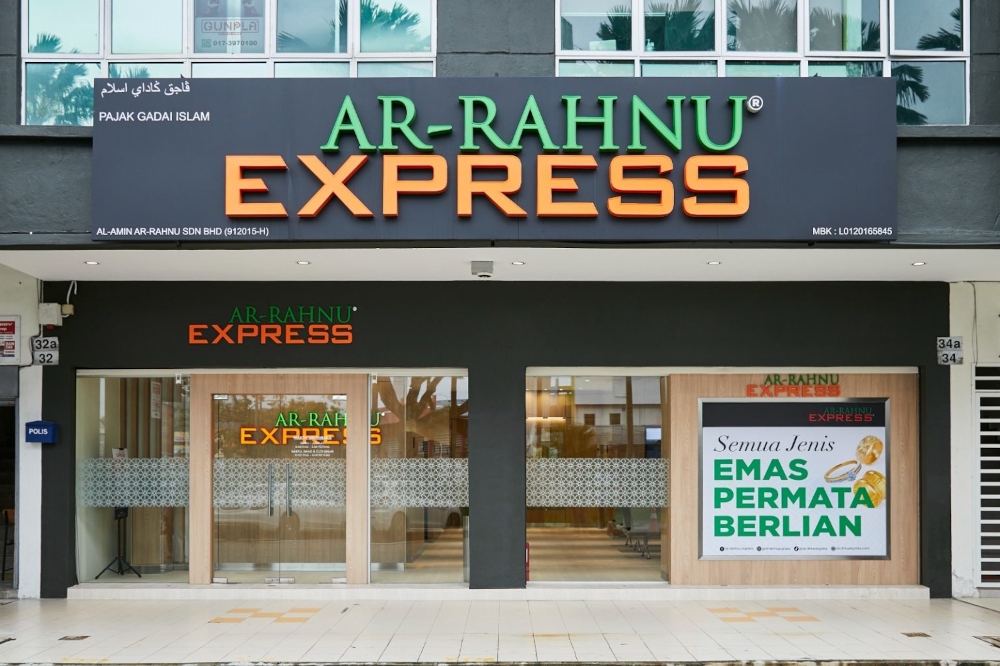
The business tycoon said the trend in liquidating gold assets for cash has been commonly practised for a long time for various reasons such as financial emergencies, debt repayment, investment opportunities, and other financial goals.
Meer said that in the past, there was a tradition of holding on to jewellery as family keepsakes or as heirlooms, not to be parted with unless in the most dire circumstances, which made the idea of selling jewellery less socially acceptable in some cultures.
“Nowadays, people recognise the practicality of selling assets during times of financial need,” he said.
“I see people being more and more accepting of liquidating their assets for whatever financial needs they may have,” he said.
Ar-Rahnu Express, which takes its name from Rahn, the Arabic word for pawn, was established in 2010 as a Shariah-based micro-financing scheme that is interest-free, fair and unburdening.
Over the past 13 years, it has grown from the main store in Ampang to a total of eight outlets nationwide.
“With a financing margin as high as 75 per cent and a storage fee as low as one per cent, we are confident that it can reduce the financial pressures faced by our customers. We also offer easy and flexible repayment methods,” Meer said.
Ar-Rahnu lists the daily trading price for gold items to be pawned on this Gold Rate website.
Meer said Ar-Rahnu recorded a spike in its customers after the Covid-19 movement control order was lifted in May 2020.
“People were looking to pawn their gold items or get micro-financing assistance to get rolling capital for their businesses, finance their personal or family’s education, pay off hospitalisation fees (for those who did not take insurance) and for emergencies,” Meer said.
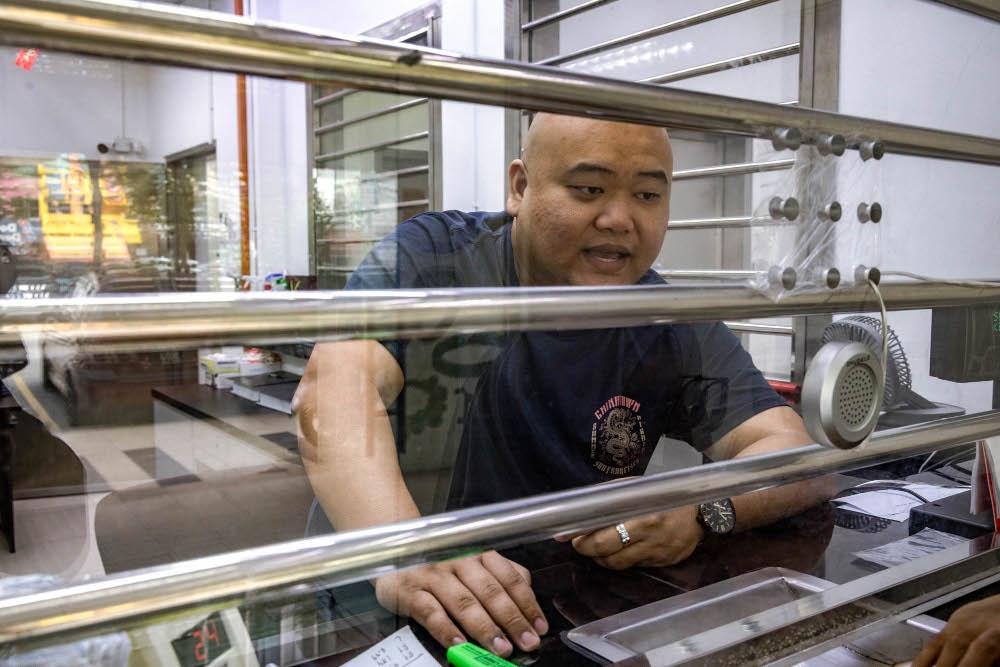
How do pawn shops work?
A pawn shop worker in Padang Jawa, Shah Alam who gave his name as Rasom Teh said his shop sees about 600 customers a month on average.
But last month, the numbers went up to almost 800, he said.
Most of them were ethnic Indians, he added, noting that Deepavali was just around the corner then.
Teh said that at most pawn shops, a six-month contract is drawn up between the customer and the pawnbroker with the gold item as collateral and interest charged according to an agreed sum.
“In six months if they can’t pay, customers can come to the store and we will change a new letter and they pay the six months’ interest,” he told Malay Mail in explaining how pawn shops generally work.
If the customer still cannot pay the amount agreed upon after that, the collateral item will be auctioned off.
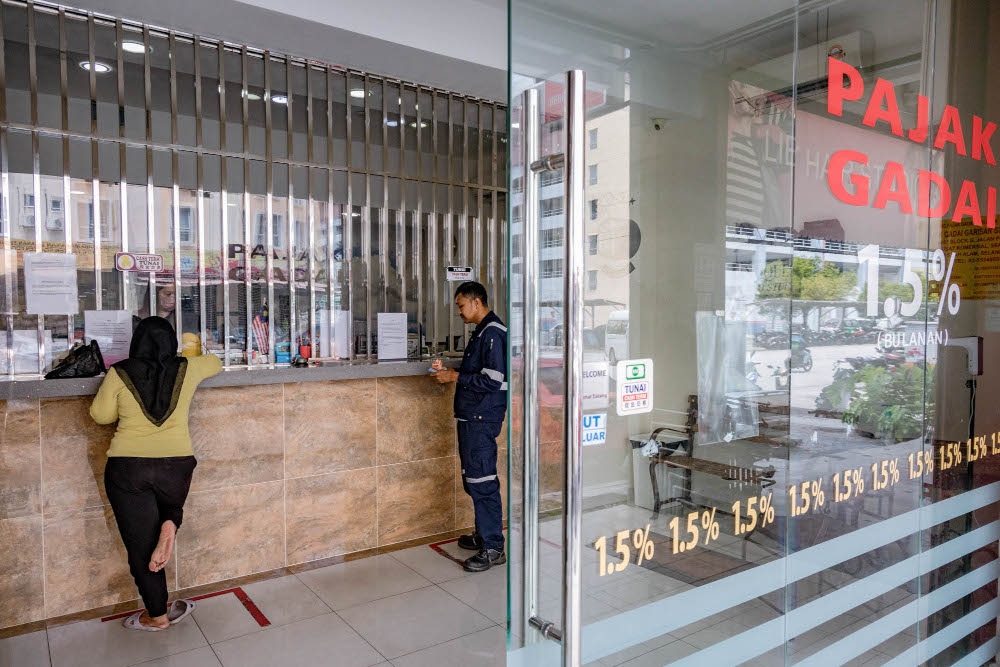
Who frequents pawn shops?
Hadirah Dania Mazidi who works at a pawn shop in Chow Kit downtown, told Malay Mail that those frequenting her shop were from diverse walks of life.
A significant number were Indonesians and Bangladeshis, she said, adding that some customers disclosed that they came from other states in Malaysia.
“We received quite a lot of customers actually and we have many branches. Since we’re in the middle of Kuala Lumpur, we received a lot of customers.
“Not only from Kuala Lumpur, but also customers from Penang and Kelantan,” the 27-year-old said.
A man who looked to be in his mid 50s stood outside a pawn shop in Sentul one Sunday, looking very pleased after coming out.
Dressed in a blue button-up shirt, the man who gave his name as Rajasigaran said he had just redeemed his collateral that he had pawned at the shop in October.
He declined to elaborate, saying he was pressed for time, but said he chose to pawn his gold for cash instead of borrowing money from relatives or from Ah Longs, as Malaysians call the underground moneylenders whose payback conditions are known to be exorbitant.
“Borrowing money from loan sharks is like we’re looking for problems right?” he said as he dashed off.




















